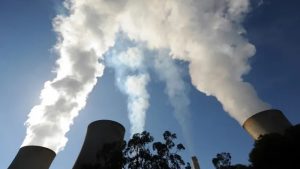 Since climate change began to gain political traction in 1990, very little has been achieved. The concentration of carbon in the atmosphere has kept going up.
Since climate change began to gain political traction in 1990, very little has been achieved. The concentration of carbon in the atmosphere has kept going up.
Lots of money has been spent, vested interests have profited, but the reality is that we remain well on course for exceeding 2C warming. Levels of carbon dioxide in the atmosphere have already breached 400 parts per million and we are on our way to 500. What was agreed at Paris three years ago will not get us anywhere near to the target of limiting man-made temperature increases to 2C, let alone the new 1.5C target.
The latest report from the UN’s Intergovernmental Panel on Climate Change, timed to frame the Conference of the Parties in Poland in December, sets out what would have to happen to hold the line at 1.5C. The mitigations proposed are simply non-credible: nobody thinks they are actually going to happen. It’s time for a rethink. The claim that global decarbonisation can be done at little or no cost is nonsense. On the contrary, switching from an overwhelmingly carbon to a non-carbon-based economy in the space of just two or three decades is really expensive.
So far the interventions have been staggeringly expensive. In Germany, it is about €25bn a year. In Britain, these early costs now make up a 20 per cent premium on household electricity bills. The political fact is that, while voters tell us they care about the climate, their concern fades quickly when they are told it is going to increase their electricity bills.
What then should we do? The reaction of many is to take one look at the IPCC report, and conclude that we are doomed to lots more global warming. After all, since much of the world’s wealth lies in the temperate zone, the first 2C will not do much damage to global gross domestic product, since the warmer conditions will bring benefits as well as costs. Indeed, they already have with the first 1C of warming. The real challenge is to persuade the public that they should take a hit now — and hence spend less to make room for investment — for a benefit after 2050.
Most of all, it needs to make sure that the very limited amount of money that current customers and voters are actually prepared to pay is spent wisely. The money needs to go on those things that might actually make a real difference.
In all this gloom, there is some really good news. It comes from recognising that, given none of the existing renewables technologies are going to do the job, we need new technologies. Fortunately, these are coming thick and fast. The economy is digitalising. The world in which we have to tackle climate change is made up of robots, 3D printing, artificial intelligence and with this comes enormous flexibility in energy consumption. It is a world of batteries, fuel cells and smart systems, of new materials like graphene, and of opening up the light spectrum, using solar film and nanotechnologies.
It’s time to get real: climate change is a global phenomenon without much chance of the top-down solution that the UN and the Paris processes promote. Yes it is good to talk; but it is better to invest in these new technologies that might actually make a difference.
Source: “New Technologies, Not Paris Climate Agreement, Will Do the Job”, Financial Times
